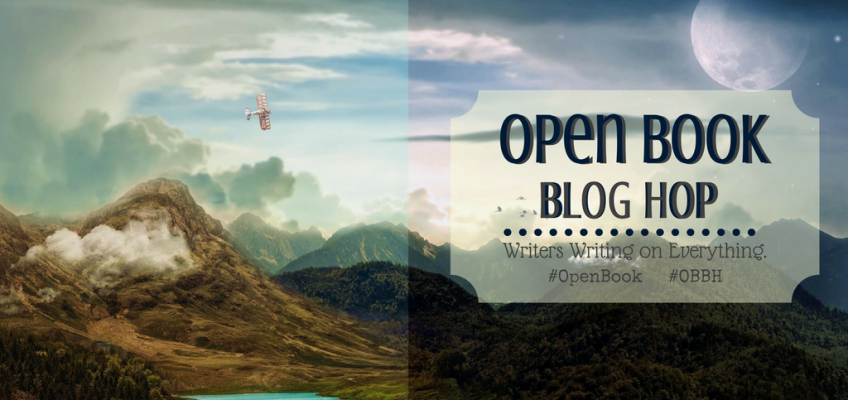Welcome back to another blog hop, with #OpenBook. Here’s this week’s prompt.
Don’t forget to click the purple button to see what everyone else has to say on this week’s subject. It’s at the end of my post.
What is your process for writing? Plot, then write? Edit as you go or not until you’ve reached the end of the story? Figure out your characters first? Something else?
I’m very lucky, because I don’t have to do any of that.
I get every novel in the same way, as a story that plays on a screen in my head. It’s complete, like watching a film in a cinema or on TV, with one major difference. When it all starts, I have no idea what the story will be about. It could be anything, in any genre. This might explain my scattergun approach to genre and why I have so many half-finished series and standalone novels.
I don’t even know who’ll be in it, where it takes place or which characters are on the side of good or evil. I have no clue which of them will still be standing at the end. I find all that out as I watch the events unfold.
My job is to write down what I see happening. No more or less than that.
Fortunately, I don’t have to be able to write really fast in order to keep up. Whoever is sending me this stuff is considerate in that respect.
Just don’t ask me how but I can control the playback speed. Without any conscious effort from me, if I’m struggling to keep up, the action slows down. I can also rewind it and see it again or pause it and move my point of view around; so that I see all the details. I can hear all the conversations between the characters and know their relevant thoughts.
That’s pretty spooky, right?
It will come as no surprise to hear that there’s a catch (isn’t there always?).
What I can’t do is fast forward. I never see the end of the story until it happens. The twist or reveal is as much of a surprise to me as it (hopefully) will be to the reader.
The only bit that really involves me is in checking that all the things that I’ve seen make sense from a practical or scientific point of view. That means they have to be logical and don’t break the fundamental laws of physics. At least, not without a good explanation. Editing is just a matter of a quick run-through to make sure that the continuity is OK and that there are no obvious plot holes. I leave the rest for my editor and beta readers to sort out.
When all this first started, over ten years ago, I kept getting my first novel as the same dream, night after night. Knowing what I would be dreaming about affected me, it broke up my sleep patterns and made me tired during the days. At first, I thought that I was hallucinating, I was concerned that there might be something wrong in my brain. I even contemplated seeking medical advice. Then I decided to write it all down, play along and see where it went.
All I can say; after nearly twenty completed novels and about fifty short stories, is that it’s been one helluva ride.
Until next time.

Let me know what you think about this week’s subject.
I’d love to get your comments, please leave them below. While you’re here, why not take a look around? There are some freebies and lots more content, about me, my writing and everything else that I do. You can join my newsletter for a free novella and more news by clicking this link.
Now see what the other blogs in this hop have to say by clicking below.
Check out the other great blogs here.

![]()



Stevie Turner
I have no idea how a story will end either, but sometimes the ending comes to me halfway through. When it does I have to be careful not to rush the story in order to get to the end. I made that mistake with my first book.
Richard Dee
With a couple of my series, I’ve finished one story and gone straight on, as another adventure has unfolded before my eyes.
P.J. MacLayne
Knowing the end of the story would ruin the surprise for you!
Richard Dee
It’s good to experience the ending in the same way that a reader will.
Daryl Devore
A great way to get a story written.
I’m way behind my times today.
Tweeted.
Richard Dee
Now I’m used to it, I enjoy the expectation.
Steven Smith
Sounds a similar process to my method. I tend to only really learn what is happening in my books as and when I sit to write!
Richard Dee
I love working this way. It makes for an exciting journey.